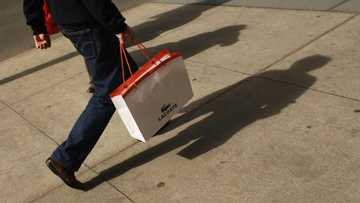US consumer inflation cools less than expected in January

Source: AFP
US consumer inflation slowed less than anticipated last month, according to government data released Tuesday, as President Joe Biden battles to assuage households' worries over costs of living while he seeks reelection.
The closely watched Consumer Price Index (CPI) rose 3.1 percent from a year ago in January, down from 3.4 percent in December, the Department of Labor said.
A measure stripping out volatile food and energy costs held steady too despite expectations that it would ease further, adding to signals that the path to lowering inflation is a gradual and bumpy one.
"Core" CPI rose 3.9 percent from a year ago, the same as in December, said the Labor Department report.
After years of relatively low interest rates, the US Federal Reserve rapidly hiked the benchmark lending rate in 2022 to quell an inflation surge.
It is now holding the rate at the highest level in more than two decades, with the goal of bringing inflation back to two percent over the longer haul.
CPI readings have fallen from a 9.1 percent peak in June 2022, and progress towards two percent is good news for policymakers -- as is the economy's apparent resilience as inflation cools.
But the Biden administration is struggling to convince voters that price pressures are easing, given that inflation is decelerating and this does not always translate to an outright drop in prices.
Congressman Brendan Boyle, top Democrat on the House Budget Committee, stressed in a statement: "Once again, today's CPI data shows inflation has fallen sharply from its peak."
Rate cuts 'not imminent'
From December to January, overall inflation ticked up 0.3 percent, an acceleration from the November to December figure, said the Labor Department report.
"The index for shelter continued to rise in January, increasing 0.6 percent and contributing over two thirds of the monthly all items increase," the department added.
The food index also increased over the month, even as energy costs slumped due to lower gas costs.
"The latest data, which show a reacceleration -– especially in the 3- and 6-month annualized readings –- support the Fed's view that rate cuts are not imminent," said Rubeela Farooqi, chief US economist at High Frequency Economics.
"Officials are likely to remain patient as they approach future policy decisions," she added in a note.
Federal Reserve Chair Jerome Powell "has indicated the Fed wants to see a continued streak of low inflation readings before easing policy," Nationwide financial market economist Oren Klachkin told AFP.
PAY ATTENTION: Stay Informed and follow us on Google News!
Source: AFP




